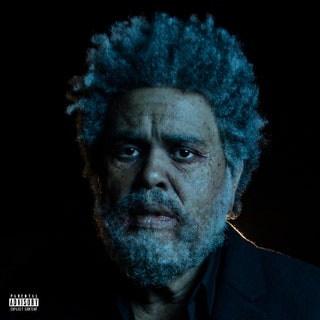Marilyn Manson has long been a rather controversial figure within the rock music world, but in the past decade-and-a-half or so, his popularity has waned to the point where many might describe him as a rather washed-up relic of the generation of teenagers that grew up in the mid and late 1990s.
Much like Ozzy Osbourne, a large part of his act was simply terrifying the heck out of parents in their respective generations.
Like Ozzy, he succeeded for a number of years before he fell by the wayside. While it could be said that albums like “Antichrist Superstar” and “Mechanical Animals” were representative of a Manson in his prime both musically and in attitude, much of his more recent material has become rather ineffective in leaving any sort of greater mark upon the new generations of youthful listeners today.
Given this unfortunate development in relation to Manson’s career, one might not really expect much of an impactful musical statement in 2015, almost 20 years after his most remembered musical offerings.
However, Manson has shown he’s still at least somewhat kicking in his new album, “The Pale Emperor.” It works surprisingly well as a revitalization of his act, an acceptance of his age and an affirmation that he can still make pretty awesome music.
“The Pale Emperor” likely owes at least some of its listenability to the production and composition talents of Tyler Bates, which might not be a well-known name among most casual listeners of the album. However, Bates’ repertoire includes many popular film soundtracks, the most recent examples being “Guardians of the Galaxy” and “John Wick.”
Bates’ contributions to the album as both its producer and Manson’s electric and bass guitar player lend what Manson himself calls a “very cinematic” quality to the album. For all intents and purposes, his contributions are extremely welcome to an aging Manson recently struggling to make any more lasting or profound musical impact.
With that said, it would probably be prudent to actually discuss the musical aspect of “The Pale Emperor.” From the beginning of the album, the track “Killing Strangers” presents a steadily thumping bass groove accompanied by a simplistic but plodding drum beat, until Manson’s voice enters with a rather revitalized vocal performance.
It isn’t exactly a home run right off the bat, given the lyrical themes that seem just a bit too hammy: lines like “We’re killing strangers so we don’t kill the ones we love” give off rather obvious allusions to themes of war and in recent historical context, American military efforts in Iraq and Afghanistan.
However, from the second track “Deep Six” on, “The Pale Emperor” starts to more consistently fire on all cylinders, demonstrating a truly revived act from Manson and his entourage. “Deep Six” itself showcases a firey and defiant energy from both the band and Manson himself, who varies his vocal performance through screams, screeches and blues-y crooning. It’s the first song to leave a greater impression on the unsuspecting listener’s ears, but it certainly isn’t the last.
Much of the album following these two tracks does follow a certain blend of blues-y guitar riffs and vocal tendencies with the previously traditional Manson formula that established and maintained the extreme popularity of his 1990s albums. Because of this, many of the songs are at least effective in some capacity, though some excessive repetitiveness is apparent in tracks such as “Third Day of a Seven Day Binge.”
That said, there are no absolute stinkers on the tracklist; regardless, some are clearly the leaders of the pack in this collection of compositions.
One track which does succeed above many of the others is the perfectly dark and brooding “Slave Only Dreams to Be King,” which showcases a glimpse of Manson returning to his prime and his band following suit with a deliciously agonizing performance.
Beginning with a sampled voice similar to that of a Southern preacher, the song gives way to discordant and smashing guitars aided by pounding drums. Manson’s own performance on the song alternates between a scratchy scream and a more smooth and blues-y voice consistent with other parts of the album. Really, it seems like the ideal Manson and Bates were going for with “The Pale Emperor.” And it certainly doesn’t disappoint.
Other highlights include “The Mephistopheles of Los Angeles,” in which Manson yells “Lazarus has got no dirt on me.” The track is one of the less heavy offerings on the album, with guitar riffs fairly consistent with a hard rock vibe, but doesn’t exactly lose any impact thanks to Manson’s own performance.
“Odds of Even,” the album’s closing track, showcases a more subdued Manson and lighter sound by his band which effectively communicates a rather mopey tone evocative of the larger parts of the blues sound present on “The Pale Emperor.”
“This is the house of death/Where even angels die in arms of demons” is a lyric from the track which seems itself to blend the blues and Manson’s typical shocking tendencies.
To be frank, “The Pale Emperor” may not be the absolute magnum opus or return to form for Marilyn Manson, but it is definitely at least worthy of a shot by any listener still interested in Manson’s particular style of industrial metal and shock rock.In fact, it’s probably worthy of a listen by just about any person vaguely interested in rock.
To that end, it’s certainly a victory for Manson in relation to the last 15 years. Perhaps he’ll return with a new album in a few years with a more refined version of the sound presented here. It definitely wouldn’t be a bad thing.



































